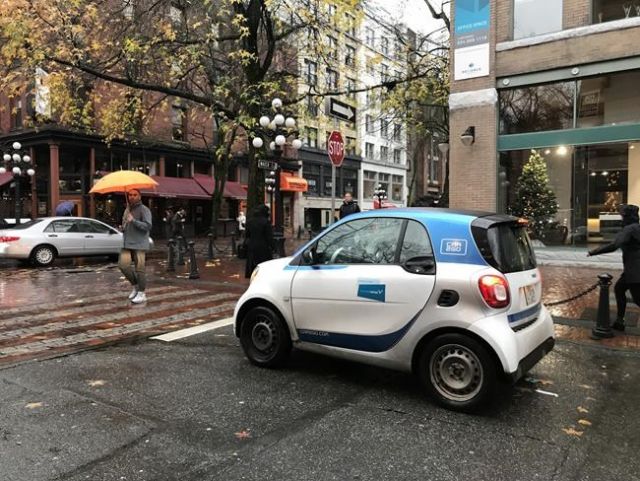
Car-sharing firm leaves Canada in changing market
The car-sharing company formerly known as Car2Go is closing up shop in North America on Saturday, taking with it valuable data for automakers looking to the future, says one expert.
The data could show how frequently people choose car-sharing services over other forms of transit, how the use of their cars differs across neighbourhoods, and even how many trips a shared car typically completes before users complain it needs to be cleaned, said Marc-David Seidel, a professor at the University of British Columbia’s Sauder school of business.
“I viewed the bulk of their entry into the car-sharing market as a large-scale experiment,” he said in a recent interview.
Share Now is the product of a 2019 merger between Car2go, owned by Mercedes-Benz’s parent company Daimler AG, and BMW Group’s car-sharing service Drive Now.
The auto giants behind the car-sharing company are using their experience to figure out how they will sell cars in a market that’s shifting away from car ownership, particularly in urban areas, said Seidel.
In an email, company spokeswoman Tiffany Young said Share Now aggregates anonymized data to evaluate supply and demand in order to optimize fleet distribution and to determine pricing. It also uses data to determine whether Share Now has the “right product mix” in its markets, she said.
Share Now will continue to operate in 17 cities, including several where its fleets are entirely electric.
Vancouver was Share Now’s largest market in North America with more than 300,000 customers, said company spokeswoman Tiffany Young. Last year, customers in the city took more than two million trips and drove more than 19 million kilometres, she said.
But North American markets lack the infrastructure necessary to support a large fleet of shared electric vehicles and Share Now believes the future of car sharing is electric, the company said in a statement announcing its withdrawal. It also cited rising operating costs and “rapidly evolving” competition.
Seidel said transit is changing so car-sharing and ride-hailing services will also compete with options such as dynamic bus routing, where buses run based on demand along major routes and may take different streets depending on where people want to get on and off.
The automakers face strategic decisions, Seidel said, like whether to operate their own shared fleets or concentrate on selling their vehicles to different car-sharing organizations or individuals participating in collectively owned services that share cars.
In 2017, Daimler invested in a service called Turo in the United States, which allows people to share their car when they aren’t using it, Seidel noted.
The advent of autonomous or self-driving vehicles will also shift the transportation landscape, he said, creating risks and opportunities for automakers and ride-hailing companies alike.


